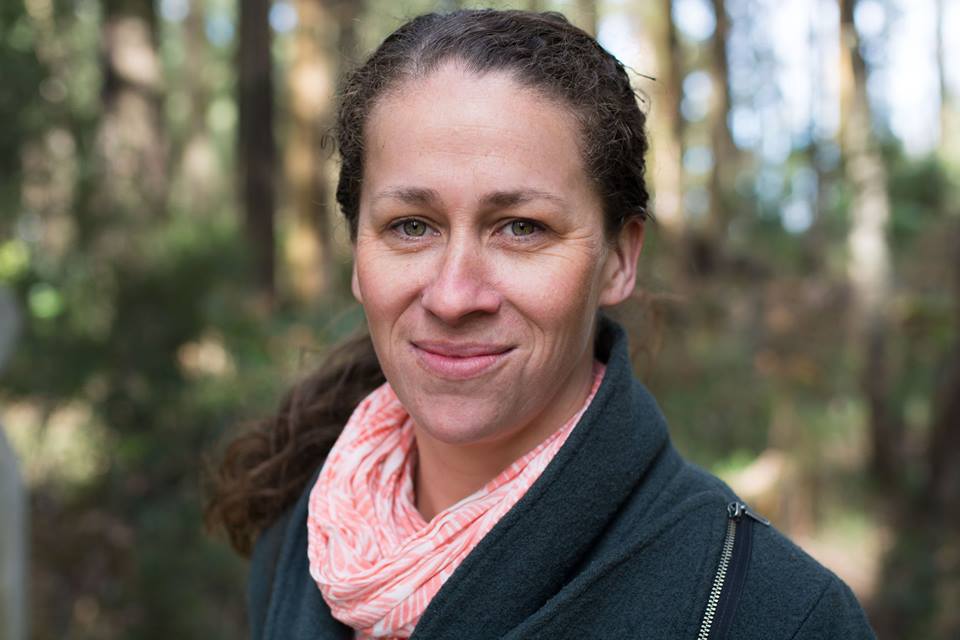
Maman ik yurrongi dhumba ngat. Narrinik Brooke Wandin. Wurundjeri bagurrk. Dulap wurrungik Woiwurrung dhumbu. Babanik Bidelia ba mamanik Allan. Gugungik Olive ba ngabapik James. Liwikik Wandoon ba Borate ba Bebejern ba Barla. Gulinjik bambuth winthoonth. Gulinjik biik wadamba ba ngarradjarranun. Biik balitnganjin wilipgin. Bunjil gamadji gulinj birraurungu. Wan birraungu ba wan bigurnu. Biik kaydo wonthaggarook.
My opinion of biik (Country) and myself changed when I stood at Baw Baw plateau in 2019. I could see the entirety of biikik (my Country). The highest and most eastern point of Country exposed an unfamiliar perspective. A new outlook. The vastness was breathtaking, I wanted to learn more about this most magnificent landscape. That magical trip to Baw Baw coincided with an increased passion for wurrung (language). Between 2019 and 2021, I intensely studied Woiwurrung and can’t seem to stop.
Woiwurrung is precious, it provides an insight into how my liwik (Ancestors) viewed and belonged to biik, and how they loved and respected their narrkwarren (families) and neighbouring mobs. Before my studies, I thought that language reclamation was out of reach. I can now see that several sources that hold wurrung (language) knowledge exist in a range of different places. The pieces of the puzzle are there in the records, waiting to be retrieved and restored.
Language work, including my current fellowship, nourishes my energy reserves, it fosters curiosity, and cultivates my motivation to pick up the threads of my Ancestors to keep cultural knowledge growing and thriving. Documents from the early colonial period link me to my liwik living on Country over 170 years ago. German-born linguist Luise Hercus, sat with and recorded members of family remembering Woiwurrung words during the 1960s. Listening to my old people, I started to hear strength and resistance. Those Aunties and Uncles were born at Coranderrk and would have been discouraged from speaking in language. Our languages survived colonisation, with words and stories being held by narrkwarren (family), within living memory.
Taking language out of the archives and gifting them to the people gives life to words that have not been dhumba (spoken) for far too long. My study has taught me to understand the inconsistent ways our languages were recorded and taught me the skills to analyse, interpret, speak, and teach. This work had previously been done by linguists who were not connected to these precious ancient languages. We can create tools to teach wurrung to our community – from our young ones right through to our Elders.
Whilst not planned, my fellowship has inspired me to create a map of biik which highlights original names for places and features in the landscape. This map explores the many intimate ngol (words) that have culture embedded within them. It points out the many words and threads that exist in records that need to be further analysed. It’s not about being perfect or correct!
Brungergalk is the original name for the Watts River, a place I know well. Brungergalk means rotting logs. This translation makes complete sense to me. As a child I fished that river with my father and brother, we crossed logs to get to the best fishing holes. Many logs and branches created shelter and habitat for blackfish. I also spent much time asking Dad to fix my line as I was always snagged! Growing up on Country gives me a deep familiarity with places. I can apply that lived experience to the records.
I hope my work continues to grow interest and momentum within my community. Only then can the next stage of language reclamation occur, sparking discussions around decisions on how to, for example, create a one sound one spelling system. Currently we see and will continue to see many different spellings of ngol (words), which fosters confusion and suspicion. Over the past few years there has been much interest in language, such as naming programs and projects using original names for places on biik. Further research needs to continue to give consistency and more culturally grounded understandings of language.
I have a refreshed pride in my liwik, my family, and self through my work with Woiwurrung. Language reclamation can be a powerful tool for individuals and families to feel a sense of purpose and cultural connection. Language is potent – a vehicle for connecting to Country and connecting to each other. Our first language is the greatest cultural legacy we can pass to our children and for all generations to come.
I am thankful to all who have taken an interest in Woiwurrung, from the earliest recordings through to recent linguists. It is time for us to be in the driver’s seat. Research and speaking in Woiwurrung is my act of sovereignty, my way of placing my people at the centre of the story, a story to be told by us, and for us. A story that has great significance for all who live on my biik today.
Language work is for my Ancestors, my family, and me! The effort of getting to that mountain was worth it – when the vista was revealed, I heard the call of Country. Baw Baw has reminded me to keep finding new ways to look at both Country and wurrung (language). I hope I go to that impressive place again, maybe when she calls me.
Liwikik mangmangnjan, wurrungik dhumbunjan – I remember my Ancestors, I speak my language.
Note: Baw Baw is a sub-alpine granite outcrop that is the highest and most westerly point of Wurundjeri Country. The headwaters of Birrarung are close to Baw Baw plateau. It is also an area where three language groups intersect.

Brooke is a Wurundjeri woman, educator, language worker and artist. Since 2018, language work has been a focus. Studying and teaching Woiwurrung simultaneously allows her new skills to be instantly trialled and shared with family and in the classroom. She is the 2022 State Library of Victoria Indigenous Victorian Aboriginal Cultural Research Fellow.
Website